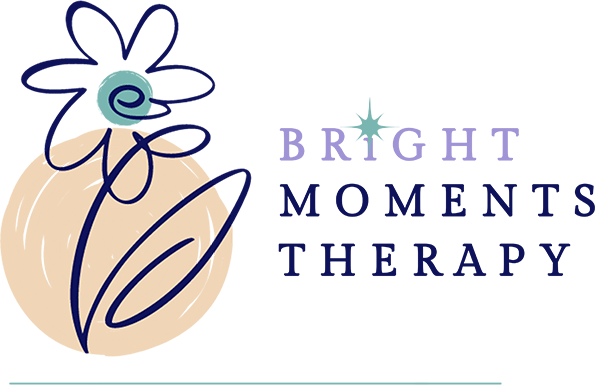We're not here to judge your beliefs, but you may have some questions about what religion can mean for the type of therapist to choose. Read on to learn about finding the perfect therapist for you.

Spirituality plays a vital role in mental health, wellness, and recovery. Studies show that someone’s spirituality can positively affect their mental health. Religion and spirituality can help a patient by providing positive coping skills, positive thinking and beliefs, and community support.
These studies show that taking someone’s beliefs and values, including spirituality, into account is an integral part of mental health treatment outcomes. One of the best ways to incorporate spirituality into healing is through the help of a
faith-based therapist.
Help Through Christian Based Counseling
Over 70% of the American population consider themselves Christian. With such a huge chunk of the population holding Christian beliefs, there’s no denying that therapists must be trained in understanding Christian values. This can help better equip them to understand the complex thoughts of their clients while assisting clients in feeling comfortable in a therapeutic setting. Some of the benefits of having a therapist that is well-versed in spirituality include the following:
Reduction in Depressive Symptoms
It isn’t just Christianity that therapists must be trained in. A
study from researchers at Duke University
showed that therapists who conducted religious-based cognitive-behavioral therapy on people of the Muslim, Jewish, Buddhist and Hindu faiths had better outcomes when it came to treating depression. Depression is a serious condition that affects almost
5% of the population in the United States and can lead to suicide. Treatment intertwined with spirituality and open to discussing religious beliefs during psychotherapy showed a reduction in physiological depressive symptoms. This includes symptoms such as fatigue, muscle pain, and body aches.
Navigating Complex Feelings
For people with deep-rooted values in faith, coming face to face with a crisis can heighten negative emotions. A study conducted at the University of Memphis showed that people experiencing grief, strong faith and belief systems were predictive of more significant overall distress.
Another complex situation that can be impacted by religiosity is identity conflict in members of the LGBTQ community. Recent studies showed that people who have identity conflicts concerning their LGBTQ identity and beliefs are at greater risk of suicide. Unfortunately, “escaping” or leaving their beliefs behind can
increase the risk of suicide even more, according to this same study. Therefore, people need help to navigate these complex emotions to minimize the risk of suicide and come to a deeper level of self-acceptance.
Spirituality and Substance Abuse
Amazingly,
studies have shown that people with increased spirituality also have a decreased overall risk of developing substance abuse. One of the pillars of substance abuse treatment is, in fact, believing in a higher power and relinquishing control of one’s addiction. With the help of a therapist trained in faith-based services, addiction treatment, and co-occurring disorders treatment, people can get the support they need to improve their overall health and reduce the risk of substance abuse.
Overall Health
Spirituality also plays a role in someone’s longevity, ability to develop healthy coping skills and lowers the risk of anxiety, depression, and suicide. Men of the Muslim faith who engaged in religious-based therapy could
recover faster from their anxiety disorder than those without. This shows the true power behind engaging in faith-based treatment such as Christian counseling services.
Breaking Through Barriers
If you’re someone that struggles with reaching out for help and someone who also has a strong religious faith, you might feel as if you have nowhere to turn to for advice and no one to offer a helping hand. This might lead you to feel frustrated and angry with life, leading to other struggles such as depression, anxiety, and chronic stress. You would love an outlet and someone to talk to, but where can you go without judgement?

Many people might feel hesitant to reach out for help in fear that it is a sign of weakness. Almost half of Americans have this toxic stigma ingrained in them. However, seeking help from a trained therapist is not a sign of weakness. Therapy that is intertwined with spiritual beliefs can be beneficial in helping you navigate through complex emotions, help you reduce the risk of suicide and mental illness, and improve your physical and psychological well-being.

A Guide Who Understands
Whether you're going through depression, need spirituality-based grief counseling, or are seeking help to restore your faith and mood, faith-based services can be the correct answer. Sadly, only 36% of therapists admitted they talked with their clients about religion and faith. How can that be when religion, faith, and values make up a huge part of who you are?
It might be because some therapists don’t want to bring up spiritual topics in fear this might hurt the relationship between themselves and a client. On the contrary, discussing your values and beliefs in a private and therapeutic setting can be a cathartic experience. However, you must find a therapist who is open to discussing these ideas and is well-versed in understanding various belief systems. It is the job of a therapist to provide a safe space free of judgement and with universal positive regard.
Heal Your Soul Inside
With so many benefits of religious and spiritual-based therapy, there’s a good chance this type of therapy will help improve your overall health and well-being. However, a trained therapist must provide competent, evidence-based treatment that coincides with your values and beliefs. We invite you to learn more about our approach to integrating spirituality and faith into psychotherapy practice. Whether you want help to overcome grief, loss, depression, anxiety, or other mental health challenges, the right mental health professional educated and experienced in spirituality can help.

Share this page:
